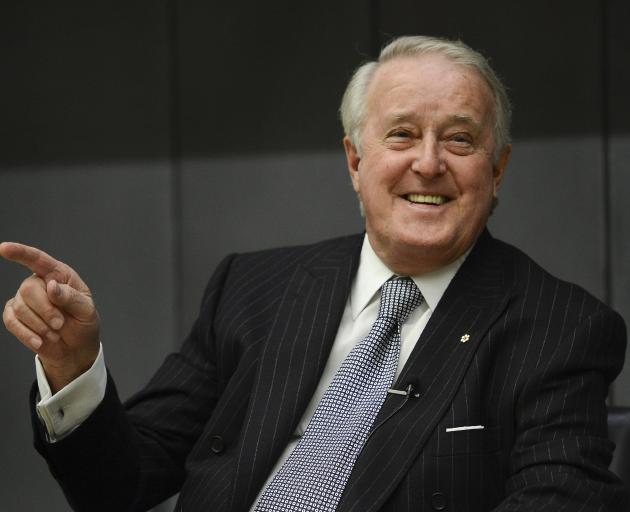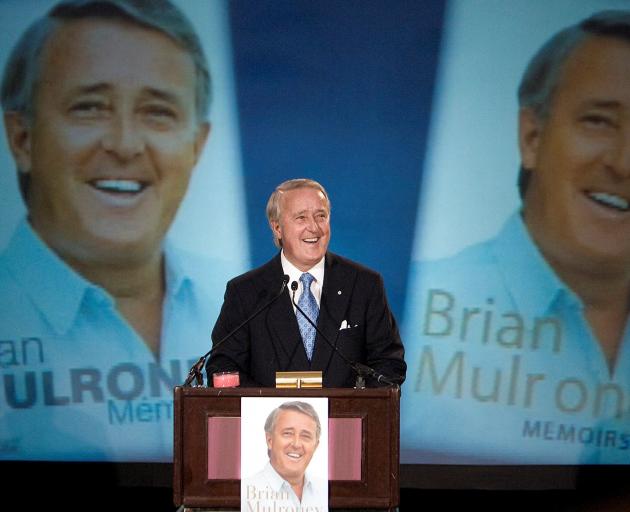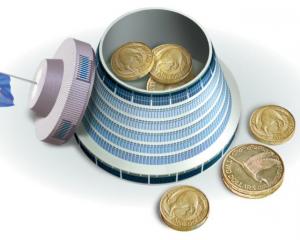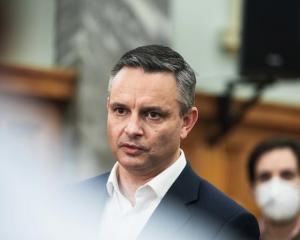
But along the way he revolutionised the Canadian economy and established his country as a major player in international affairs.
Mulroney was born on March 20, 1939, in Baie-Comeau, an isolated smelting town on Quebec’s North Shore, and grew up to speak English and French fluently. The town mill was American-owned, and Mulroney was raised on the notion that American investment meant jobs for his father and the other families in Baie-Comeau.
Hired as a labour lawyer by Montreal’s largest law firm, he later became the president of the Iron Ore Company of Canada, a subsidiary of Cleveland-based Hanna Mining.
Although a busy lawyer and in demand as a company director, Mulroney had a keen interest in politics and engaged in a series of campaigns to take over the leadership of the Progressive Conservatives, despite not being in Parliament.

A year later incumbent Prime Minister Pierre Trudeau (father of current PM Justin Trudeau) retired, and Mulroney was pitched into an election campaign against Trudeau’s successor, John Turner. Turner proved an ineffective campaigner and despite several gaffes of his own Mulroney won in a landslide.
His nine years as prime minister were marked by negotiations for the Canada-United States free-trade agreement in 1988, which helped boost Canadian exports, and the introduction of a goods and services tax in 1991. The tax was enormously unpopular politically but helped fix the government’s finances.
Under Mulroney, some government-run corporations were sold off, including Air Canada.
Mulroney took an active interest in foreign affairs, pushing through a treaty with the United States to curb acid rain, spearheading efforts to tackle the 1984 Ethiopian famine and speaking out against apartheid in South Africa.
"You cannot name a Canadian prime minister who has done as many significant things as I did, because there are none," the author Peter Newman quoted him as saying in an interview.
Mulroney formed a close bond with both then US President Ronald Reagan and his successor George Bush: he later delivered eulogies at the funerals of both men.
Mulroney’s ties to Reagan helped him negotiate the landmark acid rain treaty and the trade deal with the US, by far Canada’s biggest trading partner.
Mulroney also presided over two failed bids to change Canada’s constitution to grant the predominantly French-speaking province of Quebec the status of a distinct society.
The efforts, designed to thwart the Quebec independence movement, fostered deep cleavages between French and English Canada that reverberated politically for decades.
Despite dropping some support Mulroney won another large majority in the 1988 election, in part by bringing together social conservatives in the west of Canada and nationalist voters in Quebec.
But strains began to emerge and the union fell apart in the late 1980s and early 1990s with the creation of the overtly separatist Bloc Quebecois and the western-based Reform Party.
Mulroney resigned in 1993 amid record low popularity numbers, a precursor to the party’s catastrophic election result.

However, politics was not done with him and in 1995, a leaked letter revealed the Royal Canadian Mounted Police had accused Mulroney of having taken kickbacks from German-Canadian arms dealer Karlheinz Schreiber on the sale of Airbus airliners to Air Canada in 1988.
Mulroney sued the Liberal government and won an apology and damages in 1997, but in 2010, an inquiry into the affair concluded Mulroney had indeed had inappropriate business dealings with Schreiber.
Mulroney told the inquiry there was nothing illegal about the payments, but apologised publicly for taking the money.
"My second-biggest mistake in life, for which I have no-one to blame but myself, is having accepted payments in cash from Karlheinz Schreiber," he said in 2007.
"My biggest mistake in life — by far — was ever agreeing to be introduced to Karlheinz Schreiber in the first place."
Mulroney died on February 29, aged 84. He is survived by his wife, Mila, and their four children: Caroline, Ben, Mark and Nicolas.
"He had the courage to do big things," Prime Minister Justin Trudeau said.
"He shaped our past, but he shapes our present and he will impact our future as well. He was an extraordinary statesman and he will be deeply, deeply missed." — Agencies











